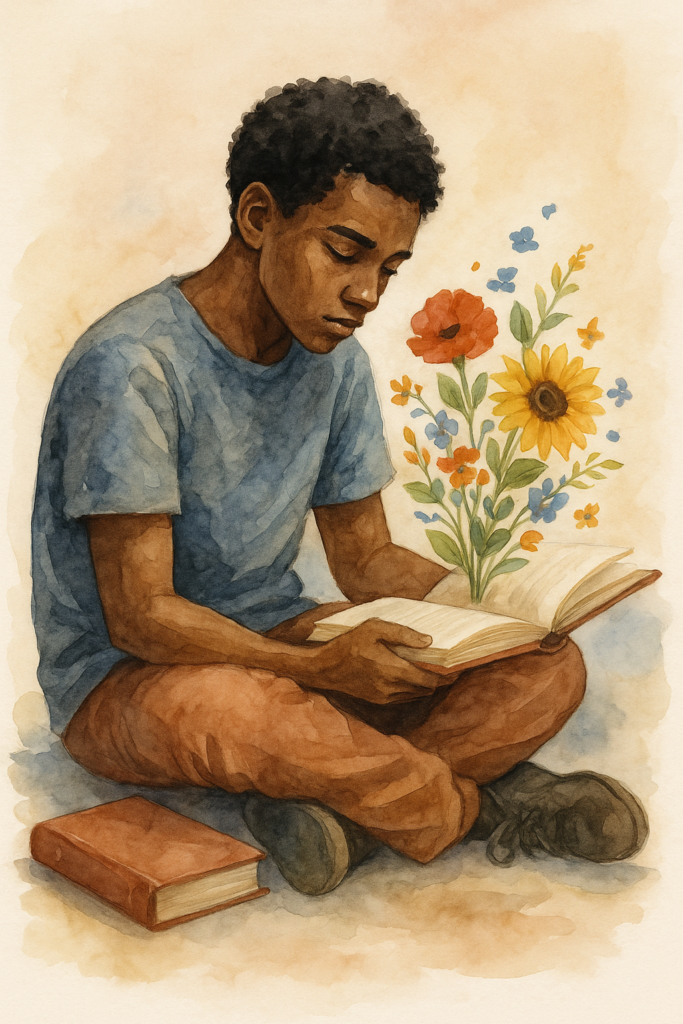Opinion – The Noble and Difficult Task of Rehabilitating Young People

Text originally published in Folha de S.Paulo on September 4, 2025
In recent years, concerns about the psychological suffering of children and adolescents in Brazil have intensified. Recent data from the Center for Data Integration and Knowledge for Health (Cidacs/Fiocruz Bahia) show that, between 2011 and 2022, suicide rates among young people increased by an average of 6% per year. During the same period, reports of self-harm among those aged 10 to 24 also rose significantly, revealing an alarming picture of emotional vulnerability.
Additional data from the Psychosocial Care Network (Raps/SUS) reinforce this trend. From 2013 to 2023, diagnoses of depression and anxiety disorders increased sharply in increasingly younger age groups. This is a serious and widespread problem in our society.
In this piece, I want to draw attention to a particularly vulnerable group: young people who are incarcerated — boys and girls who are very likely to be represented in these statistics.
Held in institutions across Brazil, these young people deal with a lack of prospects, the feeling that their lives have been wasted, and the weight of harsh social and family histories. These factors contribute to chronic low self-esteem and the development of psychosocial illnesses.
That’s why working with young people in these situations demands judicial sensitivity. A thoughtful trial and quality care can be decisive in the life of a girl in such a space. Saying this in the fast-food-like judicial system we have in Brazil — where four, five, six or more hearings are scheduled per day — may seem like wishful thinking.
But while one more hearing might be routine for a legal professional, for that young person it could be a turning point — an event preceded by weeks of anxiety and expectation. The emotional and psychological impact of these encounters with the justice system must not be treated as a detail. It’s necessary to see, to listen, and to be willing to help — not just surveil and punish.
Handling people of all ages in a courtroom takes study and talent. Working with children and teenagers does too, but with a caveat: there’s an inherent fragility in youth. As adults, we have the duty to care for the next generation — even in a broken system like ours, which seems designed to fail, with its automated procedures, generalized judgments, and resistance to humane, attentive approaches.
Socio-educational measures must be based on accountability for actions — often violent crimes that took the life of another young person, destroyed a family, and caused deep and irreversible damage. Responsibility is indispensable, but it must be paired with a commitment to developing that individual.
On one hand, we must acknowledge that young people, by nature, act impulsively. And those who commit offenses in Brazil are not doing so in a utopian society. The degrading stimuli they face — unpaved streets, lack of sanitation, denial of dignity, immature exposure to toxic content in media, music, or advertising — all lead to real-world consequences that land them at the end of the line — literally.
These young people will one day return to society. The daily work of multidisciplinary teams may not change the past, but it can help shape a better future. These professionals are the ones who remain present, hour by hour, from the moment the youth wake up to the moment they go to sleep.
In the state of Espírito Santo, where I visited a reading circle with girls serving socio-educational sentences, I was inspired to value these professionals. Like them, there are many others across the country doing what they can — despite the pressure, low pay, and often the lack of recognition for the critical services they provide.
In this context, I offer my deep gratitude to the officers, psychologists, social workers, directors, and all professionals who fulfill their duty and continue the noble and difficult mission of promoting accountability while also trying to interrupt a cycle of tragedy, psychological suffering, and social abandonment affecting Brazil’s youth.
Content translated with the assistance of artificial intelligence.
Related articles

October 20, 2025
Opinion – Djamila Ribeiro: Independence or Death

December 21, 2022
Djamila Ribeiro launches new website

December 21, 2022
Djamila Ribeiro is on the cover of Forbes Life

